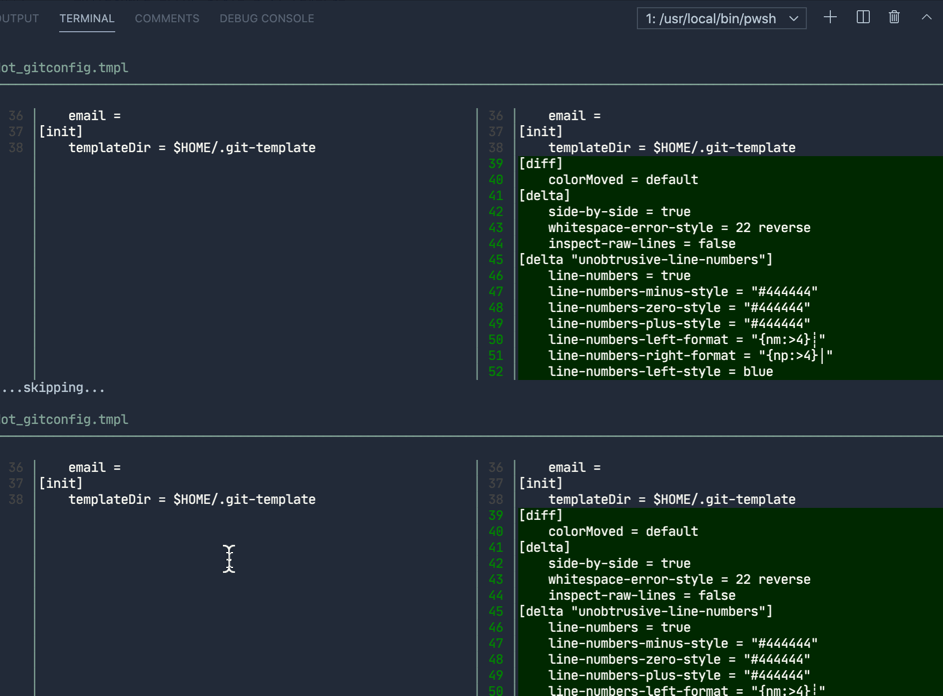Go R1 Day 13
Day 13 of 100
progress
- Worked with type asserts in my efforts to generate json collection from the parsed front matter.
My morning. Explaining set and intersect theory basics to my 10 year old with Minecraft gamer tags. Trying to justify the need to know this, the best I could come up with was his future need to build a shark attack report accurately.
Kids are the best. Tech is fun. What job would have me spin up with docker-compose up -d my MSSQL container, write a quick SQL example with INTERSECT, UNION and all to demonstrate this magic.
Followed it up with a half-hearted lie that my day is comprised of cmatrix 😂 which he didn't believe for more than a couple seconds.
{{< asciinema id="DnQ0MCgZekv11MggByfjqRNNT" >}}
I've been enjoying Codespaces local development workflow with Docker containers.
I'm using macOS and on Docker experimental release. Here are some ideas to get started on improving the development experience.
Any other ideas? Add a comment (powered by GitHub issues, so it's just a GitHub issue in the backend)
I took a quick step back when too many parentheses started showing up. If you question the complexity of your quick snippet, you are probably right that there is a much simpler way to do things.
I wanted to get a trimmed message of the results of git status -s.
As I worked on this snippet, I realized it was becoming way overcomplicated. 😆
I knew my experimentation was going down the wrong road, so I took a quick step back to see what someone else did. Sure enough, Stack Overflow provided me a snippet.
Moral of the story... there's always someone smarter on Stack Overflow. 😆
Hoping that eventually I can build out a Go app for sharing that's the equivalent of "atomic alogia" allowing diff updates. I haven't found anything like that for hugo so far.
Beat Deadcells with 3 cells active. Uninstalled. There is no way I'd find any pleasure in life trying to do more. This game is an endless pit of "git gud".
Now to go do something productive 😄
A quick fix to improve your debugging of remote commands in AWS is to install cw.
With a quick install, you can run a command like: cw tail -f --profile=qa --region=eu-west-1 ssm/custom-automation-docs/my-custom-doc.
This will give you a real-time stream of what's running.
You can also use the AWS Visual Studio Code extension, but I prefer having a terminal open streaming this as I don't have to go in and refresh any further tools to see what's happening. I tend to always start with a single instance/resource for debugging so this is a great way to remove the barrier to visibility a bit more.
Checkout delta for a much-improved git diff experience. I typically use VSCode or a GUI based editor because I find the diff view pretty messy by default.
This new diff view is a perfect example of a simple CLI tool that improves a development workflow by just fixing something I didn't know could easily be fixed. 😀

{{< asciinema id="uAGRQLD2Tuj3NVgDePMGqVnT1" >}}
{{< gist sheldonhull "709b7cf02c40863c3c845de9b4fb6d5a" >}}